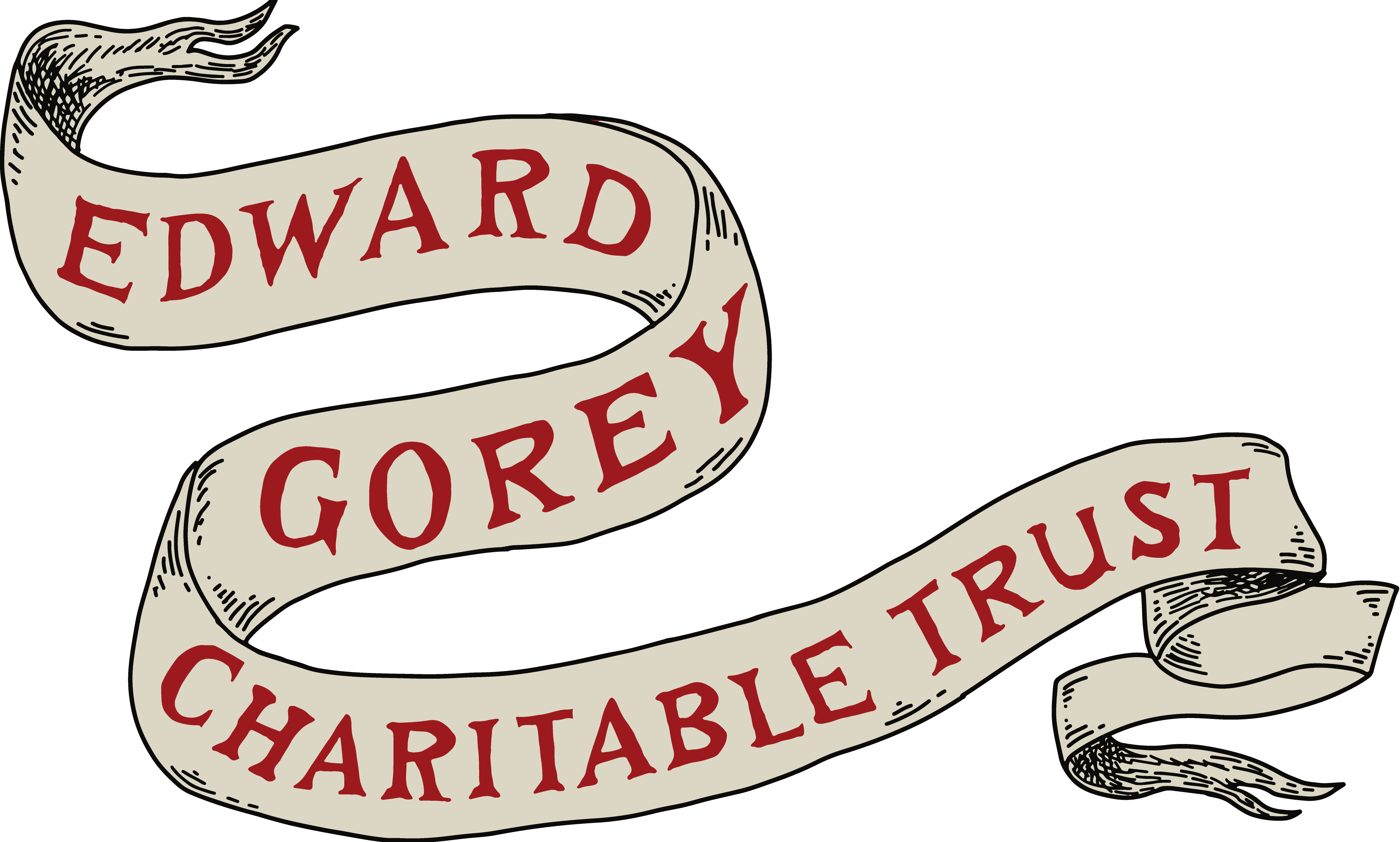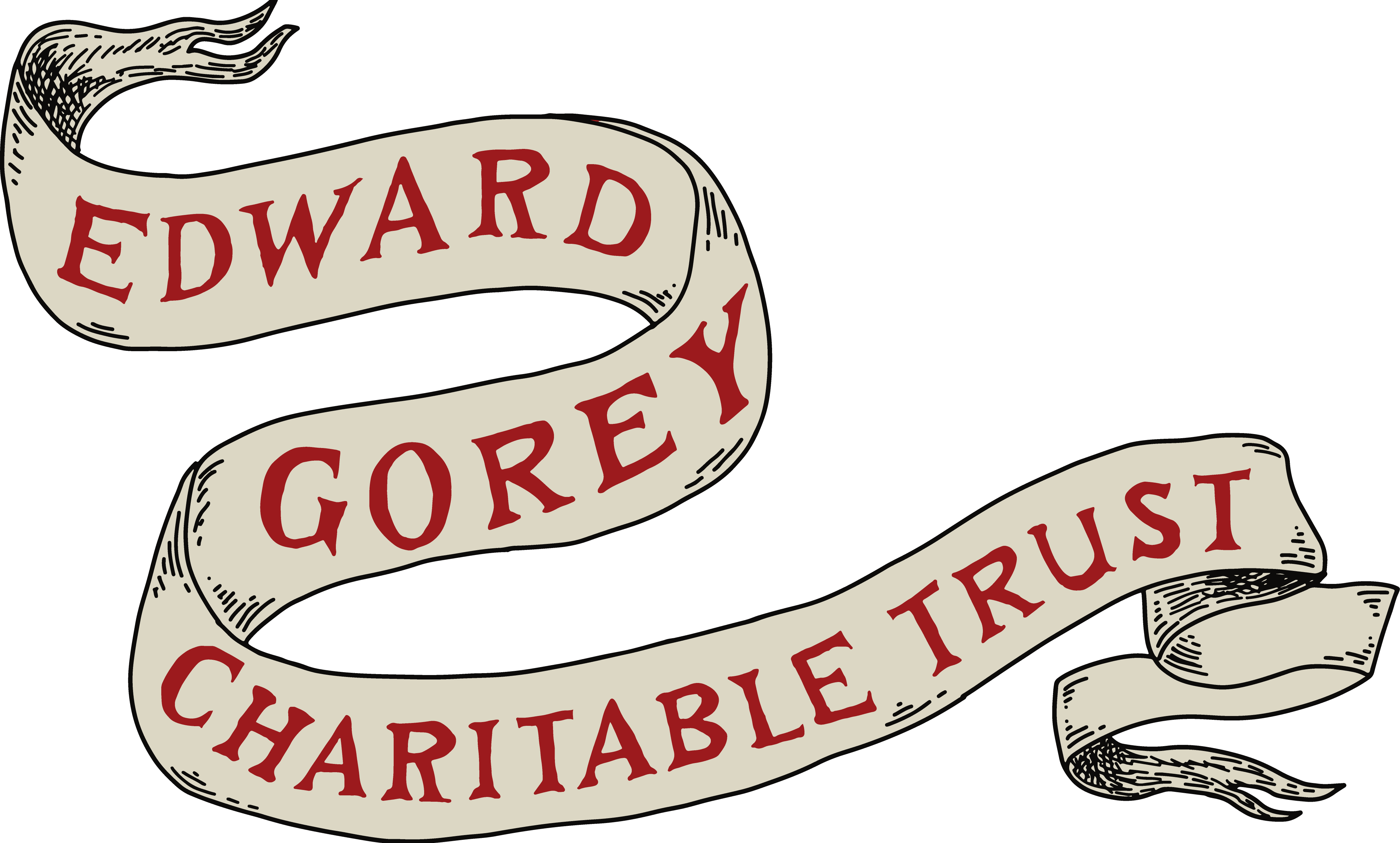By Malcolm Whyte
Published by Ivan Obelensky, New York, and in 1961 by Constable, London, as The Gorey Alphabet, 1961, The Fatal Lozenge is Gorey’s first abecedarium and his most ghastly. Yes, it’s even grimmer than his most popular ABC book, The Gashlycrumb Tinies which will follow it in three years. In a skinny, six-inch-by-five-inch volume,twenty-five individuals and one effigy, from The Apparition to The Zouave, commit, or are subject to, sad, shocking, or brutal acts illustrated in Gorey’s early cross-hatched style and told in rhyming quatrains like this:
The Zouave used to war and battle
Would sooner take a life than not
It scarcely has begun to prattle
When he impales the hapless tot.
The expiring baby hangs helplessly at the end of the French Algerian soldier’s sword, arms akimbo, and eyes darkening into death as its young life’s blood streams earthward.
The dedication “For Ruth Ells” may be a clue to what lay behind the origin of The Fatal Lozenge. Ells (not to be confused with ill-famed Ruth Ellis, British escort, nightclub hostess, and last woman to be hanged in the United Kingdom after murdering her lover, David Blakely, in 1955) was a pal of Gorey’s during his first days living in New York. One Friday night, April 1954, she invited him to a “painting- therapy” class run by a “little woman named Potts.”
“One has great sheets of inferior manila paper and on them one scribbles unconsciously in chalk and then one paints what one sees in the scribbles with grade school tempera. One does this for several hours and then there is coffee and fig newtons and all the lights are turned out except for one spotlight and then each person in turn puts up his work and talks about it and Mrs. Potts talks about it, and this goes on until practically dawn…I came away feeling quite morbid about it all, and wondering why one should go about dredging one’s conscience week after week.

first edition, front cover
“The class that night happened to consist only of quite attractive young girls, all of whom
seemed to have things on homosexuals: they all seemed very moved and exalted by the
catharsis of their paintings. Oh dear.”1
Whether the odd drawing class disturbed Gorey enough to affect his writing The Fatal Lozenge is unknown.Nevertheless it is a playbook for violence, both physical and mental, from suicide and bodysnatching to cleric fetishism, terminal drudgery, and child abuse.
In his writing Gorey was drawn to especially obscure or archaic words. A prime example is the “fantod,” as in his own enterprise, The Fantod Press. Rarely used today, a fantod is a state of irritability, fidgets, and tension; sometime an acute sate of worry and distress. It’s not hard to envision him in such a state on a bad day as he winds up The Fatal Lozenge. In addition to Zouave (above), his book has a number of other seldom-heard words, including:

page from The Fatal Lozenge
ennui – listlessness and dissatisfaction resulting from lack of interest; boredom.
kohl -a powder, as finely ground antimony sulfide, used as a cosmetic to darken the eyelids, eyebrows, etc.
lazar – a poor and diseased person, especially one afflicted by a dreaded, contagious disease such as leprosy. [Middle English, from Middle Latin, Lazarus].
magnate – a wealthy and influential person, especially in business or industry. [From Latin magnus, great]
truncheon – a short, thick club, mainly used by police officers; Billy club.
yegg – a thief or safecracker; also, robber. The most common suggestion is that this dated slang term is derived from John Yegg, the alias of a bank robber in the late 19th and early 20th centuries.
Musty words like these underscore the era in which The Fatal Lozenge takes place. Judging by the women’s stylishly thin gowns or luxurious puff-sleeved floor length dresses and top-hats or straw boaters for bearded, well-to-do men, that would be between the 1890s and the 1920s, one of Gorey’s favorite periods to illustrate. It is an era that present-day readers might consider being more colorful, exciting and fun than today, as it saw the rise of air travel, telephone, telegraph, movies and the automobile. Beneath those resplendent marvels, however, a dark, dangerous world thrived as bared by Gorey in this unusually chilling ABC book.
1. Gorey letter to Alison Lurie. Spring, 1954, Cornell University Library, Division of Rare and Manuscript Collections ↩



